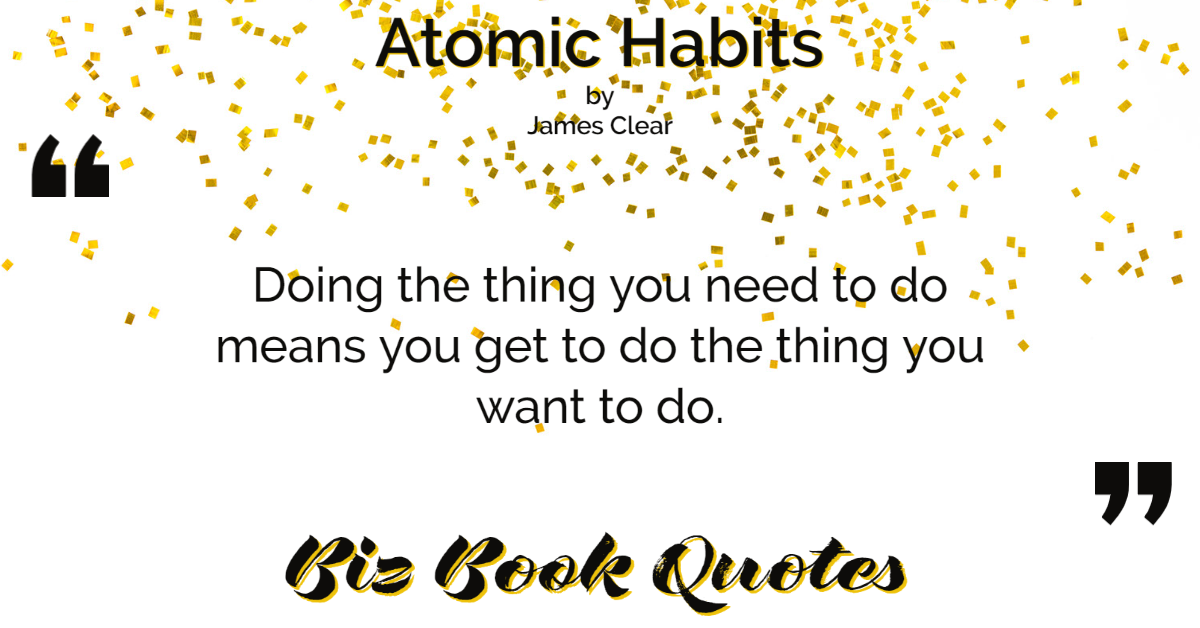 |
Doing the thing you need to do means you get to do the thing you want to do.
|
111 |
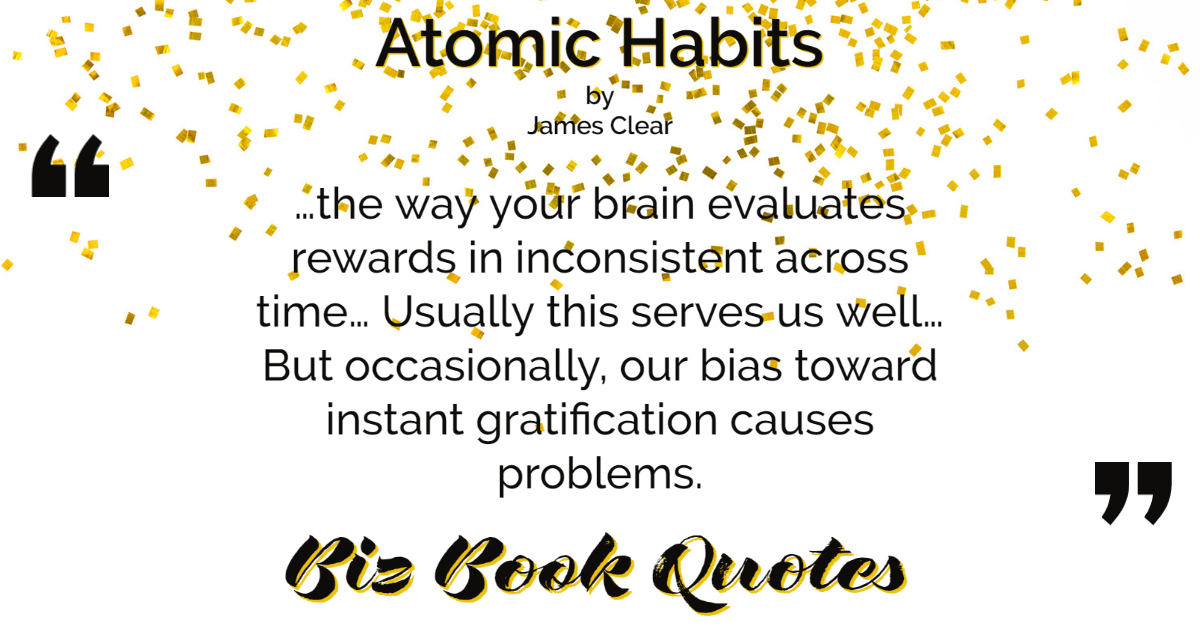 |
…the way your brain evaluates rewards in inconsistent across time… Usually this serves us well… But occasionally, our bias toward instant gratification causes problems.
|
188 |
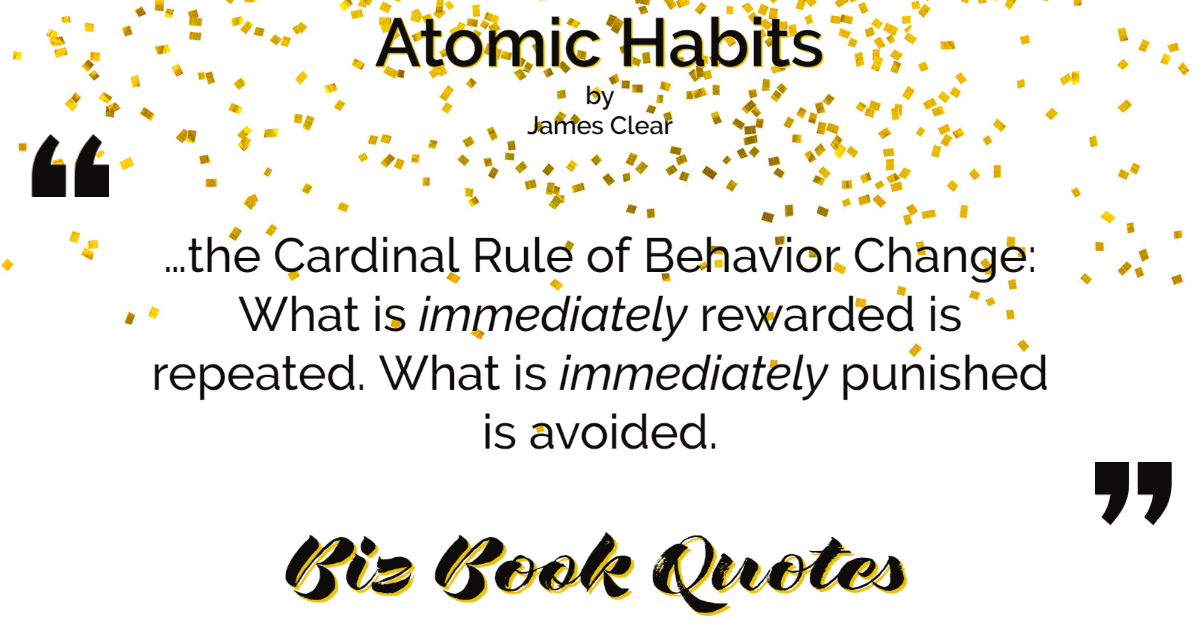 |
…the Cardinal Rule of Behavior Change: What is immediately rewarded is repeated. What is immediately punished is avoided.
|
189 |
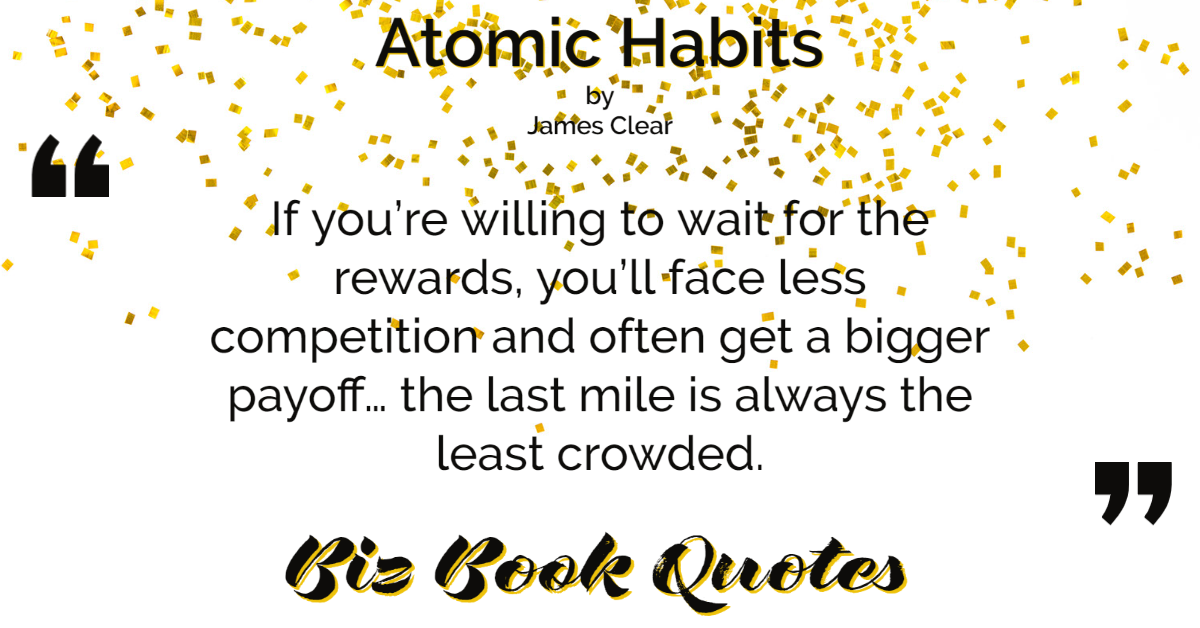 |
If you’re willing to wait for the rewards, you’ll face less competition and often get a bigger payoff… the last mile is always the least crowded.
|
190 |
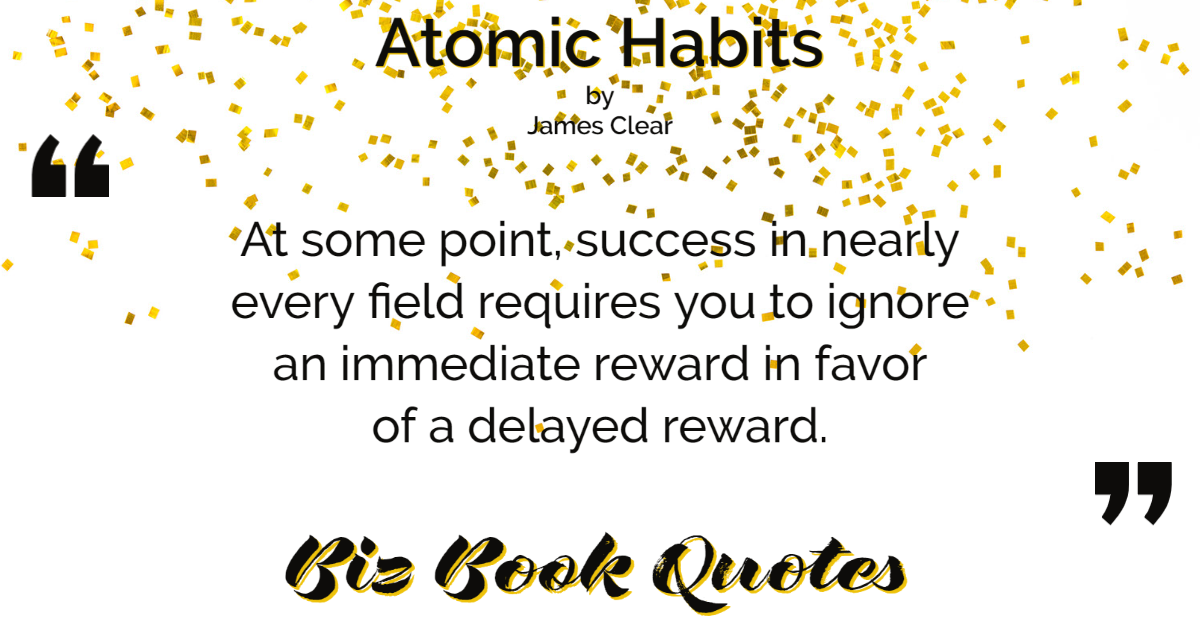 |
At some point, success in nearly every field requires you to ignore an immediate reward in favor of a delayed reward.
|
190 |
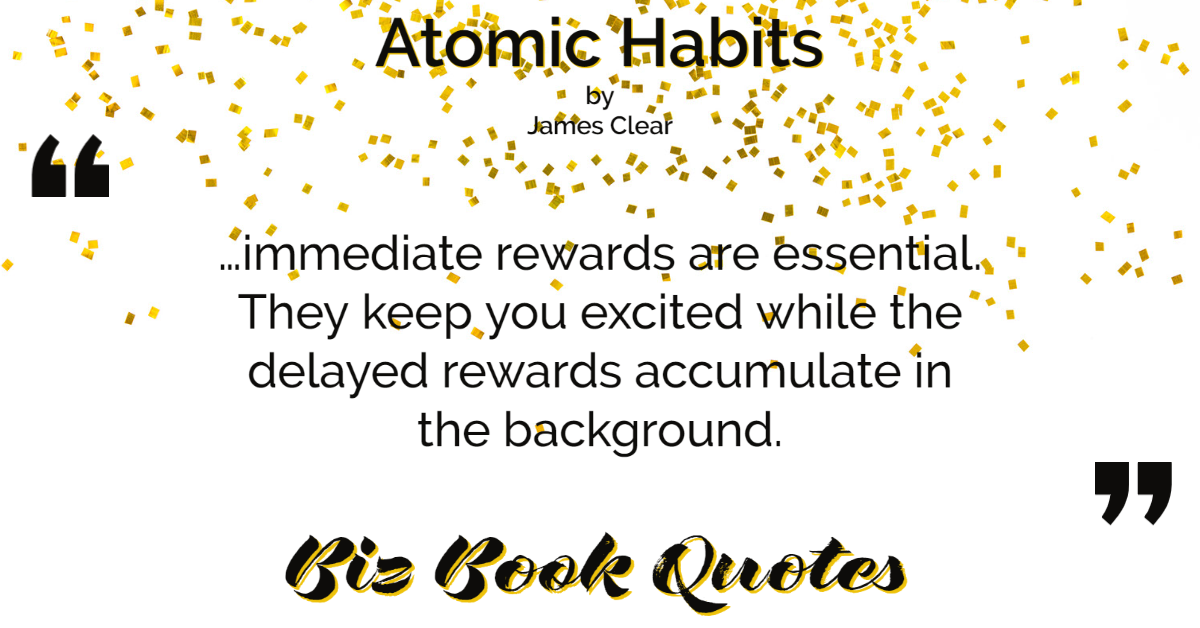 |
…immediate rewards are essential. They keep you excited while the delayed rewards accumulate in the background.
|
191 |
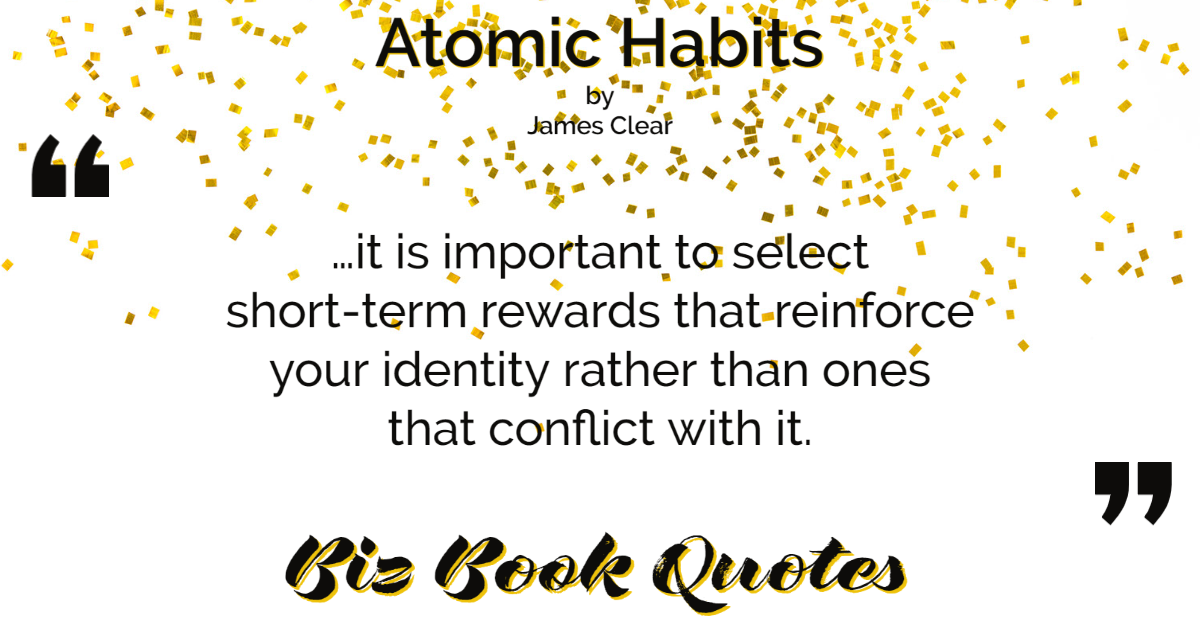 |
…it is important to select short-term rewards that reinforce your identity rather than ones that conflict with it.
|
192 |
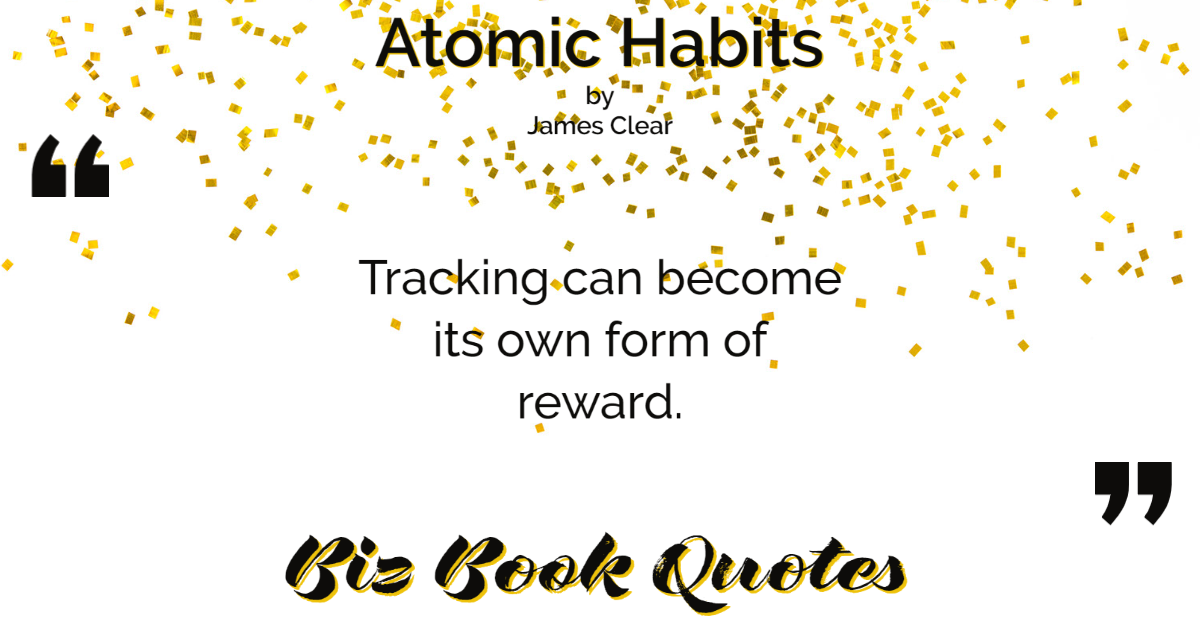 |
Tracking can become its own form of reward.
|
198 |
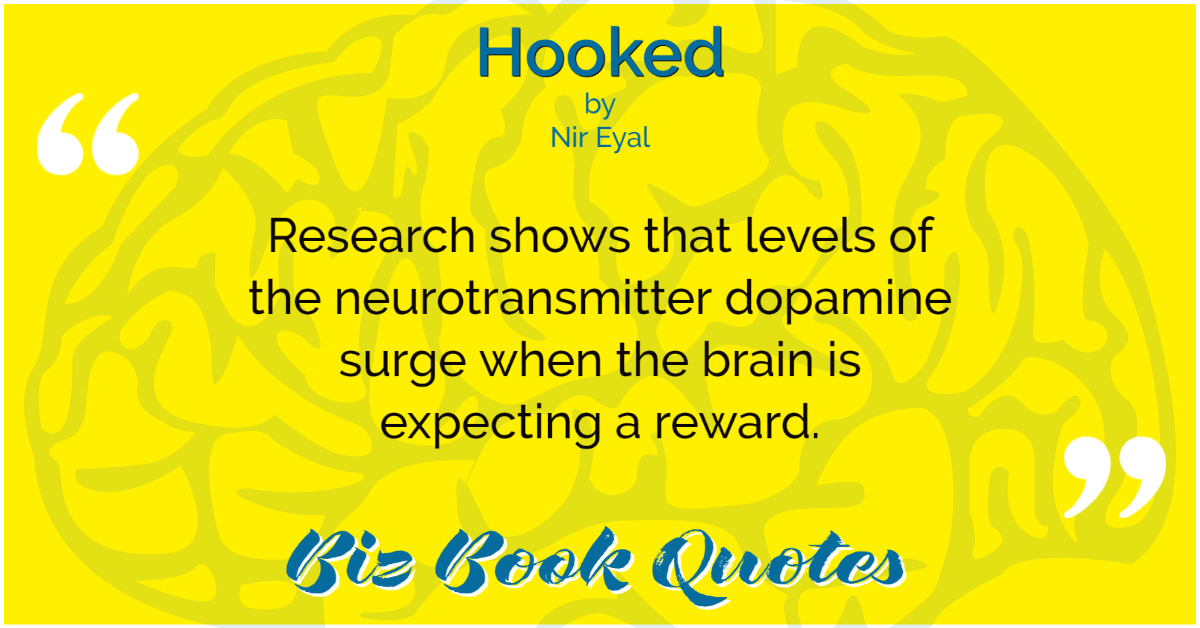 |
Research shows that levels of the neurotransmitter dopamine surge when the brain is expecting a reward.
|
8 |
 |
…what draws us to act is not the sensation we received from the reward itself, but the need to alleviate the craving for that reward.
|
97 |